Bachelor's Buttons: The Best Companion Plants For A Beautiful And Thriving Garden
Bachelor's Buttons: The Best Companion Plants for a Beautiful and Thriving Garden
Bachelor's buttons are a type of annual flower that is known for its bright blue blooms. They are easy to grow and make a beautiful addition to any garden. But did you know that bachelor's buttons can also be beneficial to other plants in your garden?
That's right, bachelor's buttons are actually a great companion plant. They can help to attract pollinators, deter pests, and improve the overall health of your garden.
In this blog post, we will discuss the best companion plants for bachelor's buttons. We will also provide some tips on how to plant and care for these beautiful flowers.
Benefits of Companion Planting
Companion planting is a gardening technique that involves planting different types of plants together in order to create a more beneficial environment for all of the plants. There are many benefits to companion planting, including:
- Increased pollination: Companion plants can attract pollinators, such as bees and butterflies. These pollinators help to pollinate other plants in the garden, which can lead to increased yields.
- Reduced pest pressure: Some companion plants can help to deter pests. For example, marigolds are known to repel nematodes, which can damage plants' roots.
- Improved soil health: Companion plants can help to improve the overall health of the soil. For example, legumes, such as peas and beans, fix nitrogen in the soil, which can benefit other plants.
Best Companion Plants for Bachelor's Buttons
Bachelor's buttons are a great companion plant for a variety of other plants. Some of the best companion plants for bachelor's buttons include:
- Calendula: Calendula is a daisy-like flower that is known for its insect-repelling properties. It can help to deter pests such as aphids, whiteflies, and beetles.

- Chamomile: Chamomile is a fragrant herb that is known for its calming properties. It can also help to attract pollinators to the garden.
- Lavender: Lavender is a beautiful and fragrant herb that is known for its insect-repelling properties. It can help to deter pests such as mosquitoes, flies, and ants.

- Marigolds: Marigolds are another type of daisy-like flower that is known for its insect-repelling properties. They can help to deter pests such as aphids, whiteflies, and beetles.
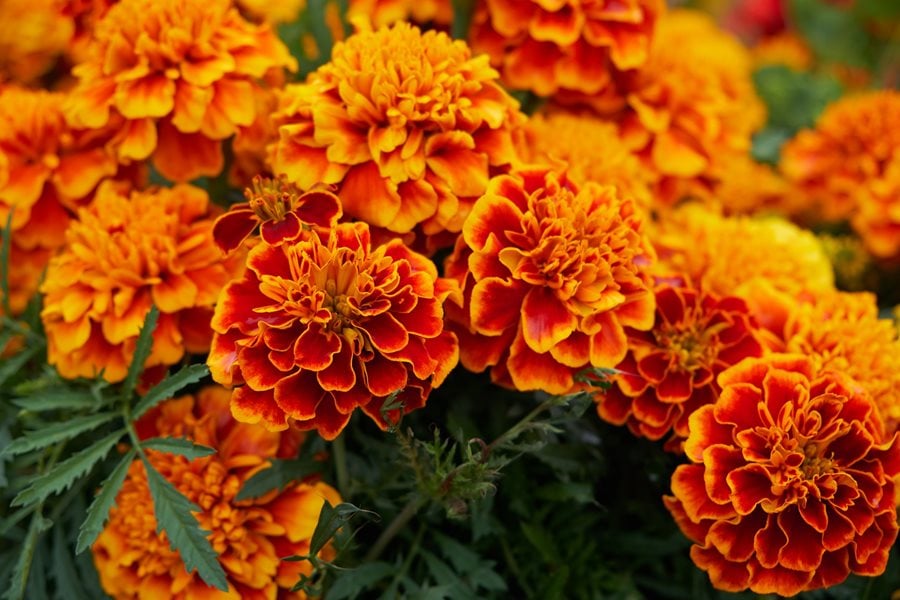
- Nasturtiums: Nasturtiums are a type of edible flower that is known for its insect-repelling properties. They can help to deter pests such as aphids, whiteflies, and beetles.

- Sweet alyssum: Sweet alyssum is a low-growing groundcover that is known for its sweet fragrance. It can help to attract pollinators to the garden.
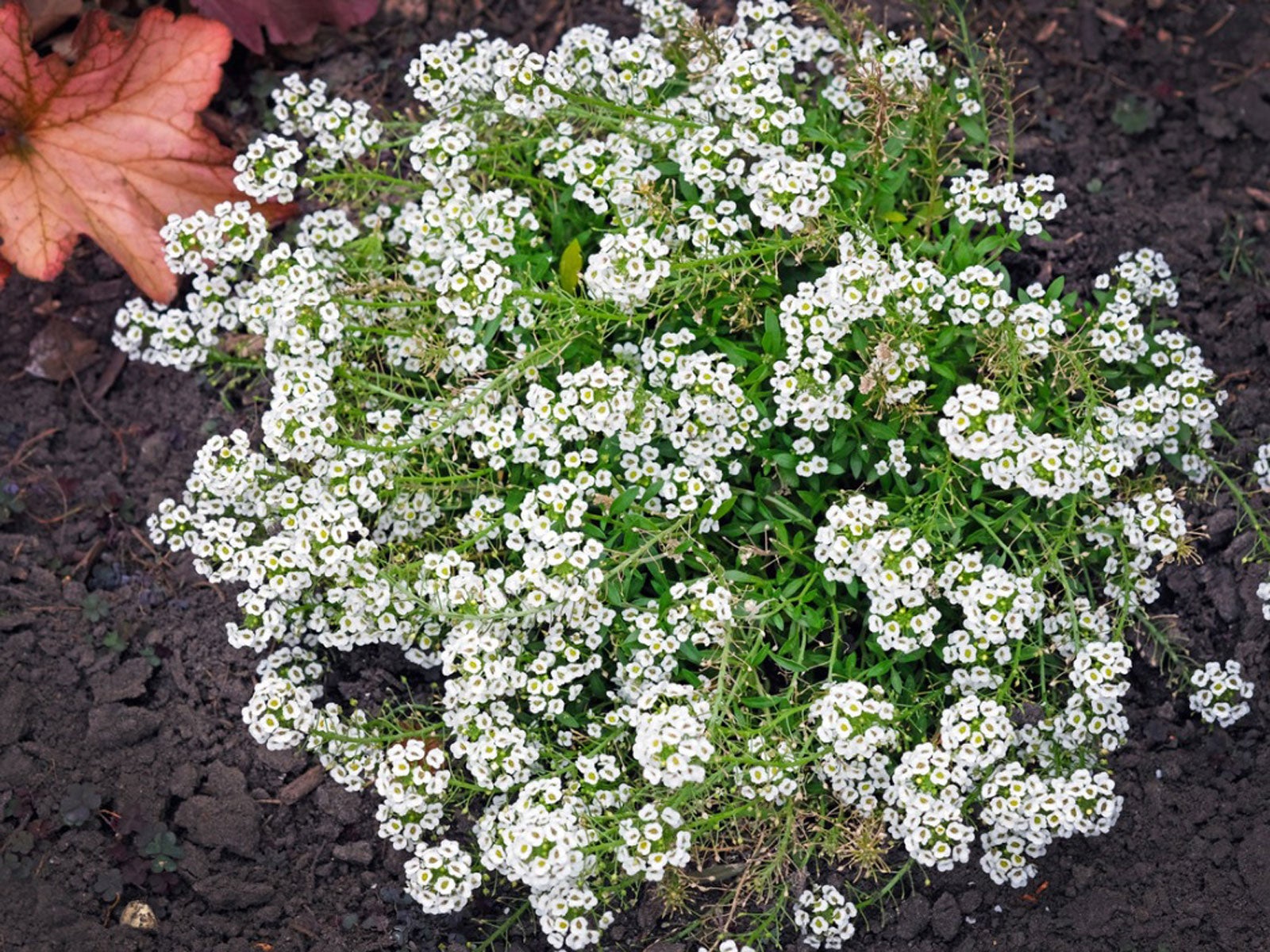
- Zinnias: Zinnias are a type of annual flower that is known for its bright colors. They can help to attract pollinators to the garden.
How to Plant and Care for Bachelor's Buttons
Bachelor's buttons are easy to plant and care for. They can be planted in full sun or partial shade. They prefer well-drained soil, but they can tolerate a variety of soil types.
To plant bachelor's buttons, sow the seeds directly in the ground in early spring. The seeds should germinate in about 1-2 weeks.
Bachelor's buttons do not require a lot of fertilizer. A light application of fertilizer in the spring will help them to bloom well.
Bachelor's buttons are relatively drought-tolerant, but they will appreciate regular watering during the hot summer months.
Conclusion
Bachelor's buttons are a beautiful and beneficial flower that can add a lot to any garden. They are easy to grow and care for, and they can help to attract pollinators, deter pests, and improve the overall health of your garden.
If you are looking for a new flower to add to your garden, I highly recommend bachelor's buttons. They are a great choice for both beginners and experienced gardeners.
Bachelor buttons are beautiful flowers that can add a touch of color to any garden. But did you know that they can also attract beneficial insects and help to deter pests? That's why it's a good idea to plant bachelor buttons with other companion plants.
Some good companion plants for bachelor buttons include:
- Bee balm: Bee balm is a nectar-rich plant that attracts bees, butterflies, and other pollinators. It also helps to deter pests such as aphids and spider mites.
- Black-eyed Susans: Black-eyed Susans are another nectar-rich plant that attracts pollinators. They also help to suppress weeds and improve the drainage in your soil.
- Coneflowers: Coneflowers are a tall, sturdy plant that can help to provide shade for bachelor buttons. They also attract pollinators and help to deter pests.
- Daisies: Daisies are a low-maintenance plant that can add a touch of elegance to your garden. They also attract pollinators and help to suppress weeds.
If you're looking for more information about bachelor buttons companion plants, I recommend visiting Gardenia Inspiration. This website has a wealth of information about companion planting, including a list of specific plants that are compatible with bachelor buttons.
FAQ of bachelor buttons companion plants
Q1: What are some good companion plants for bachelor buttons?
A: Bachelor buttons are a great addition to any garden, and they can be companion planted with a variety of other plants. Some good companion plants for bachelor buttons include:
- Daisies: Daisies and bachelor buttons both attract pollinators, so they make a great pair. They also have similar growing requirements, so they're easy to care for together.
- Marigolds: Marigolds help to repel pests, such as aphids and whiteflies, which can be a problem for bachelor buttons. They also add a splash of color to the garden.

- Sweet alyssum: Sweet alyssum is a low-growing plant that helps to suppress weeds and improve drainage. It also has a sweet fragrance that attracts pollinators.

- Lavender: Lavender is a drought-tolerant plant that helps to attract pollinators. It also has a calming fragrance that can help to deter pests.

- Yarrow: Yarrow is a hardy plant that helps to attract pollinators and repel pests. It also has medicinal properties, and it can be used to make a tea or tincture.
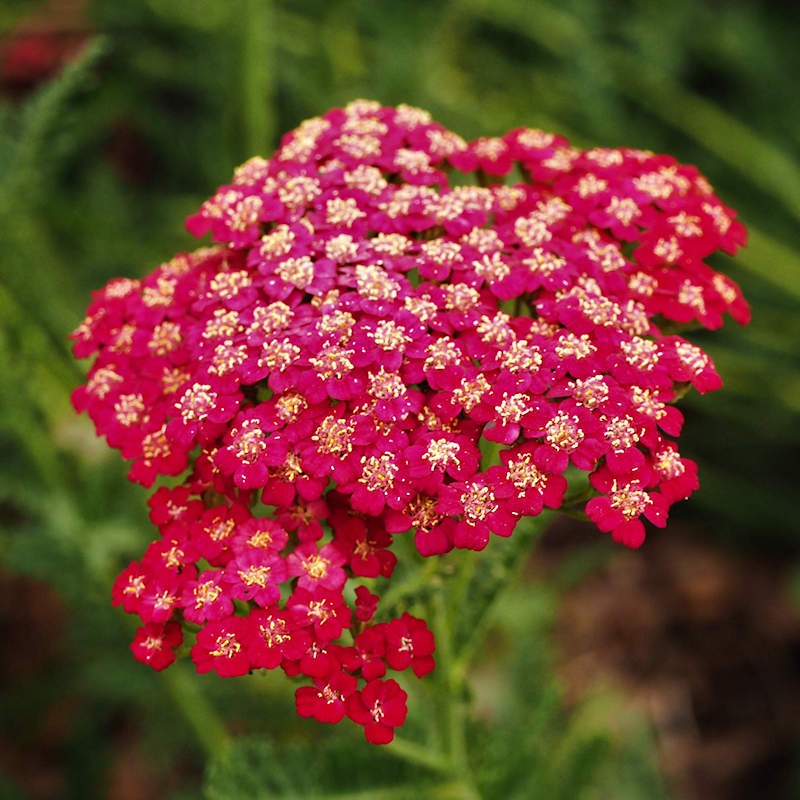
Q2: What are the benefits of companion planting bachelor buttons?
A: There are several benefits to companion planting bachelor buttons. First, it can help to improve the health and productivity of the plants. Companion planting can also help to attract pollinators, which can help to increase the yield of fruits and vegetables. Additionally, companion planting can help to repel pests and diseases.
Q3: How do I plant bachelor buttons with companion plants?
A: When planting bachelor buttons with companion plants, it's important to consider the size and growth habits of the plants. For example, if you're planting bachelor buttons with tall plants, such as marigolds or lavender, make sure to plant the bachelor buttons in the front of the border so they don't get shaded out.
It's also important to consider the soil type and drainage when planting bachelor buttons with companion plants. Bachelor buttons prefer well-drained soil, so if you're planting them with plants that prefer moist soil, such as sweet alyssum or yarrow, make sure to amend the soil with compost or sand to improve drainage.
Q4: How do I care for bachelor buttons and their companion plants?
A: Bachelor buttons and their companion plants are relatively easy to care for. They need full sun and well-drained soil. Water them regularly, especially during hot, dry weather. Fertilize them every few weeks with a balanced fertilizer.
Q5: What are some common problems with bachelor buttons and their companion plants?
A: Some common problems with bachelor buttons and their companion plants include:
- Aphids: Aphids are small, sap-sucking insects that can damage plants. They can be controlled with insecticidal soap or neem oil.
- Whiteflies: Whiteflies are small, winged insects that can also damage plants. They can be controlled with insecticidal soap or neem oil.
- Leaf spot: Leaf spot is a fungal disease that can cause leaves to turn yellow or brown. It can be controlled with a fungicide.
- Downy mildew: Downy mildew is a fungal disease that can cause leaves to wilt and fall off. It can be controlled with a fungicide.
Image of bachelor buttons companion plants
5 different images of "bachelor buttons companion plants" from Pinterest:
- Yarrow: Yarrow is a tall, airy plant that attracts beneficial insects and helps to repel pests. It also blooms at the same time as bachelor buttons, so they make a great companion planting.
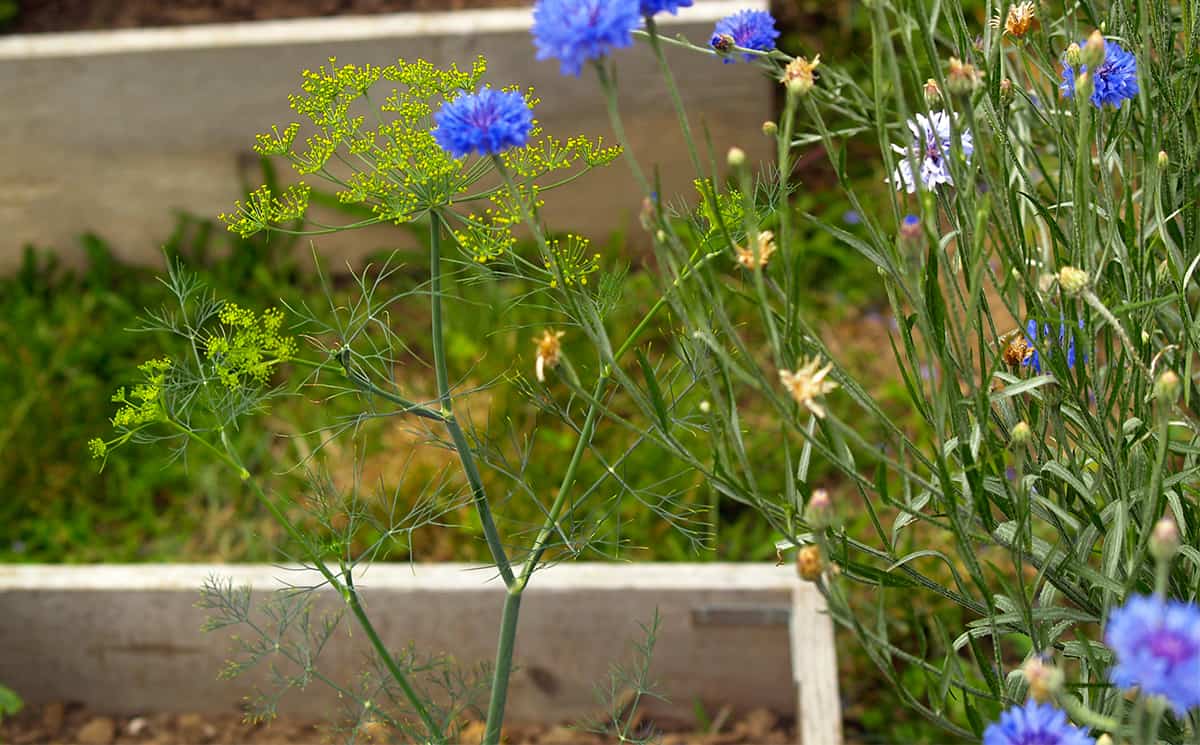
- Sweet alyssum: Sweet alyssum is a low-growing, spreading plant that adds a touch of fragrance to the garden. It also attracts pollinators and helps to suppress weeds.
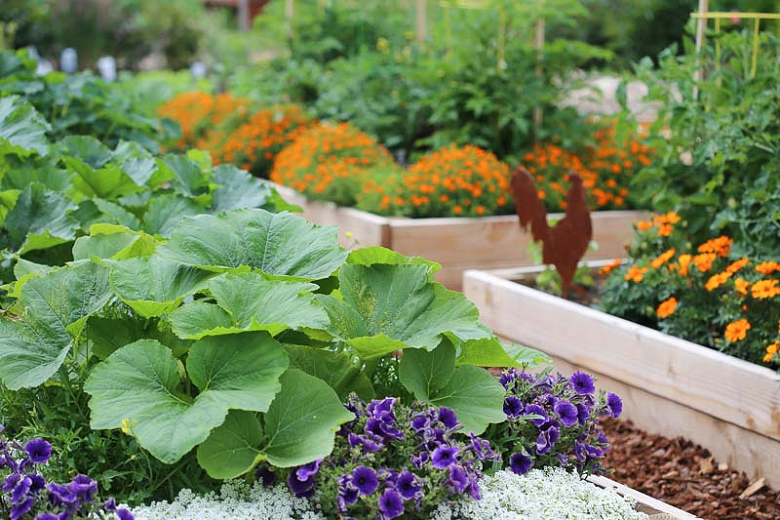
- Cosmos: Cosmos is a tall, daisy-like flower that blooms in a variety of colors. It attracts pollinators and helps to improve the soil.
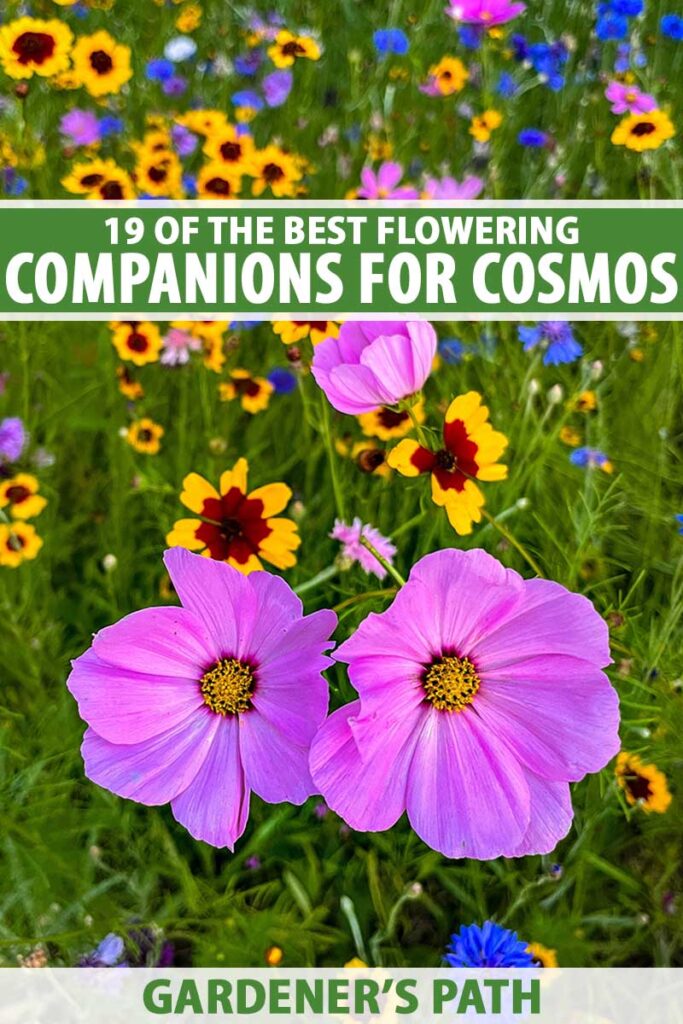
- Lavender: Lavender is a fragrant herb that repels pests and helps to attract pollinators. It also blooms at the same time as bachelor buttons, so they make a great companion planting.

- Nasturtium: Nasturtiums are a bright, cheerful flower that attracts pollinators and helps to deter pests. They also grow well in containers, so they can be used to add color to a balcony or patio.

Post a Comment for "Bachelor's Buttons: The Best Companion Plants For A Beautiful And Thriving Garden"